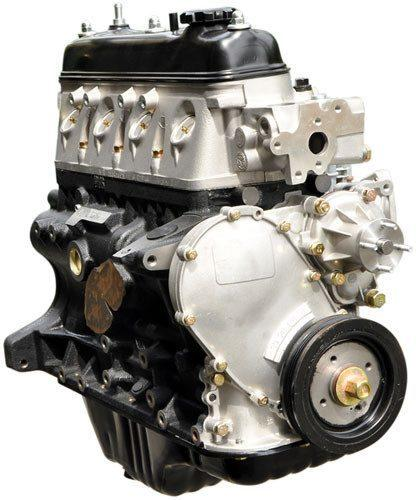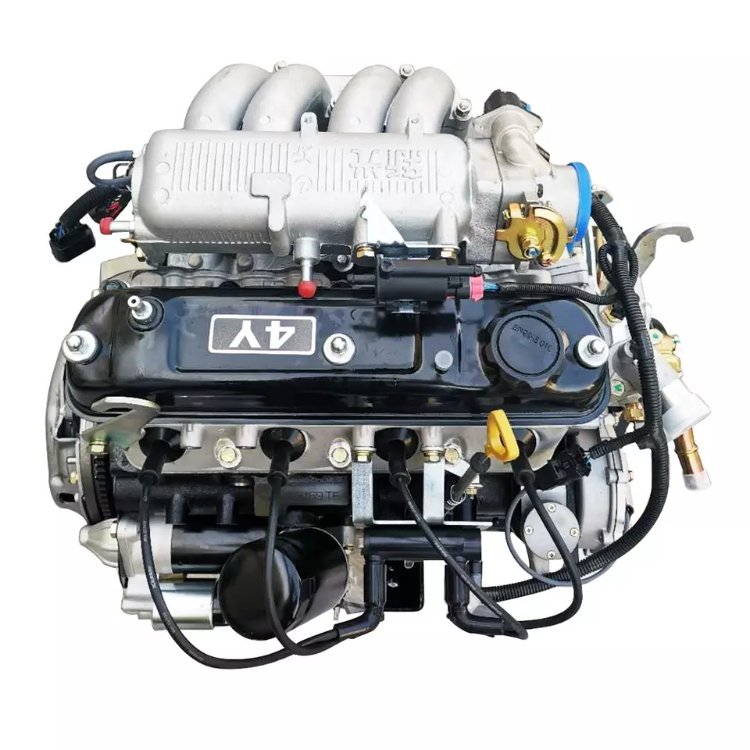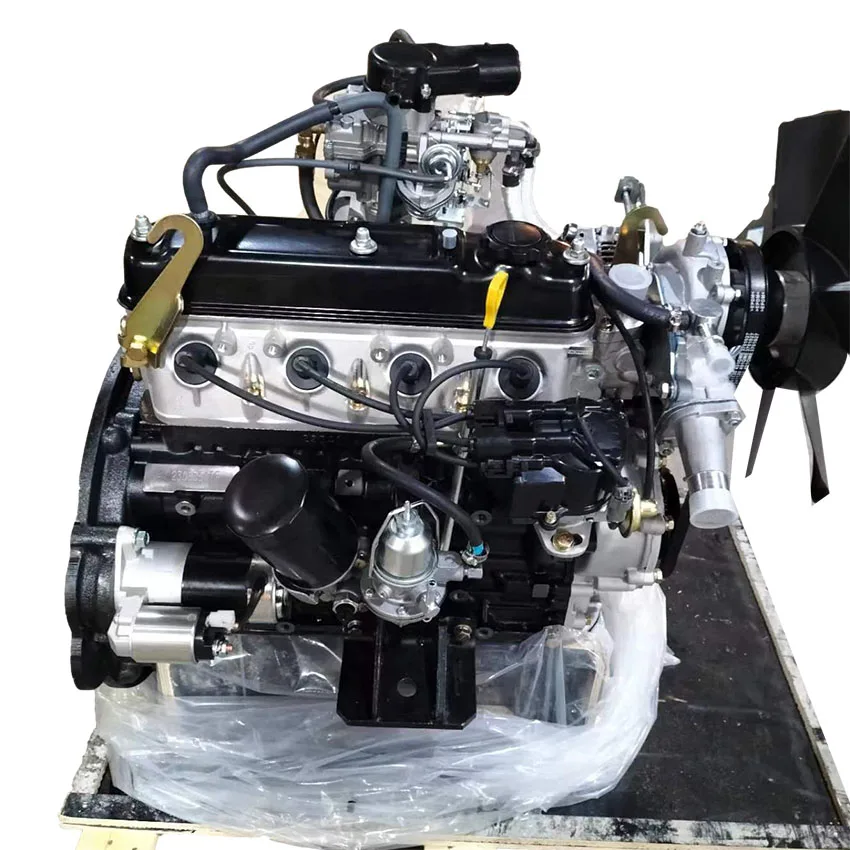Checking Out the Different Types of Engine: Which One Fits Your Requirements?
Internal burning engines proceed to dominate due to their integrity, while electric engines are gaining grip for their sustainability. Crossbreed engines offer a functional compromise, and diesel engines stand out for their power in demanding applications.

Interior Burning Engines
Inner burning engines (ICEs) are the foundation of modern transportation, powering a substantial variety of cars from vehicles to planes. These engines operate the principle of converting fuel right into mechanical energy through a collection of regulated surges within a combustion chamber. The most typical types of ICEs consist of gas engines, diesel motor, and rotary engines, each made to satisfy specific performance and performance requirements.
Gas engines generally make use of stimulate ignition, while diesel engines count on compression ignition, resulting in distinct distinctions in fuel efficiency and power outcome (4y engine). Rotary engines, or Wankel engines, supply a compact layout and smooth procedure, however are less generally utilized in mainstream applications
ICEs have actually gone through substantial innovations in innovation, including the introduction of turbocharging and fuel injection systems, which improve total efficiency and efficiency. Regardless of their efficiency renovations, ICEs deal with increasing scrutiny due to their environmental effect, specifically relating to greenhouse gas emissions.
Electric Engines
As concerns about environmental sustainability and nonrenewable fuel source reliance expand, electrical engines have emerged as an engaging choice to interior combustion engines. These engines use electrical motors powered by batteries or gas cells, giving a cleaner and more effective motive powers.
Among the main benefits of electrical engines is their lowered emissions. Unlike traditional engines that shed nonrenewable fuel sources, electrical engines generate no tailpipe exhausts, substantially lowering air pollution and adding to boosted public wellness. Furthermore, the performance of electric motors typically exceeds that of internal combustion engines, transforming a higher proportion of energy from the power resource into useful power for motion.
Electric engines are likewise noteworthy for their peaceful procedure, making them optimal for urban settings. 4y engine. The simplicity of their layout causes less moving parts, which can cause minimized maintenance costs and boosted integrity gradually
Nonetheless, obstacles stay, consisting of battery manufacturing effects, charging facilities, and array restrictions. Despite these hurdles, the expanding investment in electrical vehicle technology and renewable resource sources factors towards a promising future for electrical engines, placed to play an essential role in the shift toward sustainable transportation.
Hybrid Engines
Blending the advantages of both electric and standard inner burning engines, hybrid engines represent a flexible remedy in the quest for efficient and lasting transportation. These engines combine a gasoline or diesel motor with an electrical motor, enabling for enhanced fuel efficiency and reduced discharges contrasted to traditional lorries.
Crossbreed engines run in numerous modes, using the electric motor for low-speed driving and the internal combustion engine for greater rates or when even more power is required. This dynamic operation not just enhances gas economy however also adds to a smoother driving experience. Regenerative stopping is another important function, recording energy normally lost throughout stopping and redirecting it to recharge the battery.

As customers increasingly prioritize eco-friendliness, hybrid engines stand out as a functional selection, offering an effective equilibrium of efficiency, efficiency, and environmental obligation. This adaptability makes them appropriate for metropolitan travelling and long-distance travel alike.
Diesel Engines
Performance and power are trademarks of diesel engines, which have long been preferred for their toughness and gas economy. These engines operate on the concept of compression ignition, where air is compressed to a high temperature before gas is injected, igniting it without the requirement for ignition system. This process check over here allows diesel engines to achieve higher thermal efficiency compared to fuel engines, translating into better gas gas mileage and lower co2 exhausts.
Diesel engines are particularly fit for sturdy applications such as trucks, buses, and commercial equipment, where torque and toughness are extremely important. Their style usually consists of more powerful components to hold up against the higher stress created during procedure, leading to longer solution life and reduced upkeep expenses.

Alternate Fuel Engines
While diesel engines have long dominated the landscape of sturdy source of power, alternative fuel engines are obtaining traction as sensible choices for an extra sustainable future. These engines make use of a selection of gas, such as pressed natural gas (CNG), ethanol, lp, and hydrogen, aiming to minimize greenhouse gas emissions and reliance on nonrenewable fuel sources.
One significant benefit of different gas engines is their prospective to reduced carbon footprints. For example, CNG engines emit less contaminants compared to traditional diesel engines, making them ideal for metropolitan transportation systems and fleets seeking to improve air high quality. Ethanol, originated from biomass, not only reduces discharges yet likewise supports agricultural economic climates.
Hydrogen gas cells stand for an innovative development in this realm, using zero-emission power through a chain reaction in between hydrogen and oxygen. Difficulties such as infrastructure advancement and manufacturing costs remain obstacles to prevalent fostering.
Final Thought
Finally, picking the proper engine kind requires see cautious consideration of details requirements and choices. Inner burning engines use reliability, while electric engines focus on sustainability and lowered upkeep. Hybrid engines incorporate the advantages of both, improving efficiency, whereas diesel motor supply remarkable power and torque for durable applications. Alternative fuel engines existing environment-friendly choices, albeit with prospective facilities obstacles. Ultimately, a detailed analysis of driving routines and ecological worths will certainly help with an educated choice pertaining to engine selection.
Crossbreed engines use a versatile compromise, and diesel engines stand out for their power in demanding applications. The most usual kinds of ICEs consist of fuel engines, diesel engines, and rotating engines, each developed to meet details performance and performance demands.
Unlike conventional engines that burn fossil gas, electrical engines generate absolutely no tailpipe emissions, substantially reducing air pollution and adding to boosted public wellness.Crossbreed engines operate visit this site in a number of modes, making use of the electrical motor for low-speed driving and the internal combustion engine for higher speeds or when even more power is required. Hybrid engines incorporate the benefits of both, enhancing effectiveness, whereas diesel engines give remarkable power and torque for heavy-duty applications.